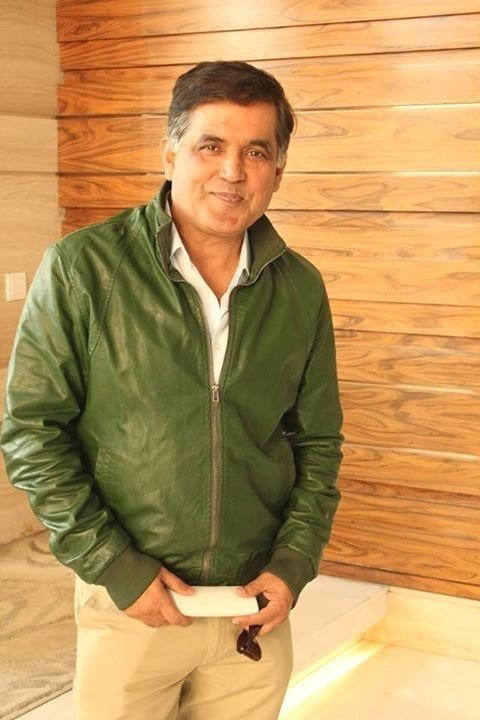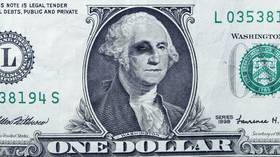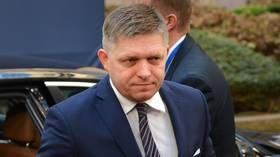Will Facebook and Twitter lose Modi… or India?
Indian PM Narendra Modi may not actually quit social media anytime soon but the mere thought of an Indian exodus from these platforms, Russia-style substitution or China-like security rules is giving Big Tech a headache.
The Silicon Valley boardrooms of social media giants went into a tizzy this week, trying to wrap their heads around Modi’s announcement that he’s “thinking of giving up” his Facebook, Twitter, Instagram and YouTube accounts.
Modi has since clarified that he would give up social media only temporarily – to a suitable woman on International Women’s Day, in fact – but the fact that his government has summoned Facebook and Twitter representatives over the role of their platforms in stoking the recent violence in New Delhi wouldn’t have gone unnoticed, either.
Also on rt.com Time to ‘Make in India’? Modi puzzles 137mn followers by saying he may ‘GIVE UP’ Facebook, Twitter, Instagram & YouTubeWith 137 million followers, Modi is by far the biggest influencer in a country of 550 million internet users – a number set to cross a billion by the end of this decade. But these companies won’t just see a drop in their stock value on account of Modi shepherding his supporters out of their stables. Their biggest concern is that India could develop social media platforms of its own in the near future.
Social Media and its follies
This has been a long-term demand of internet users in India, at least since Modi first came to power in 2014. Indeed, Twitter’s representatives were once summoned by India’s parliament for promoting caste divisions within society. That they refused to comply with the summons and didn’t present themselves to lawmakers pleased neither India’s rulers nor millions of its citizens.
Twitter’s CEO Jack Dorsey also once posed with a poster which took a pot shot at India’s upper castes. This move angered the castes in question and led one parliamentary official to accuse Dorsey of attempting to “destabilize the nation.”
During Twitter CEO @jack's visit here, he & Twitter's Legal head @vijaya took part in a round table with some of us women journalists, activists, writers & @TwitterIndia's @amritat to discuss the Twitter experience in India. A very insightful, no-words-minced conversation 😊 pic.twitter.com/LqtJQEABgV
— Anna MM Vetticad (@annavetticad) November 18, 2018
Dorsey doesn’t deny that his team is, in general, left-leaning. The head of Twitter India unabashedly promoted opposition leader Rahul Gandhi in the run-up to last summer’s elections. Many Twitter accounts of right-wingers are suspended or blocked for relatively tame remarks, while vitriolic comments spewed by the other side are rarely pulled up on. I, for one, can vouch that, despite dozens of new followers showing up everyday on my Twitter account, the overall number of followers has steadily been decreasing. Facebook too has had to go back in the trenches for allowing political advertisements.
It’s not just about politics, but also national security. India has been quarrelling with these social media tycoons, arguing that the Indian data they gather must remain on Indian servers and must not leave the country without the government’s permission. Aside from allowing foreign companies to benefit from the monetization of this data, New Delhi is also concerned that Indian citizens may be “profiled,” with this data then used to influence the country’s political outcomes.
Following the trend
It would be incorrect to assume that Modi is simply bored with social media. He was tech savvy even before he came to power in 2014. Indeed, it was the sophistication of his social media strategy, and the millions of dollars his party spent towards it, which was widely acknowledged as a prime factor in his victory. Modi has also embraced social media as a way of directly reaching his citizens, bypassing the often-biased mainstream media in the same manner as US President Donald Trump.
If he were to follow through on the idea, Modi would not be the first world leader to eschew Western social media platforms. And why would leaders operating outside the US sphere of influence count on getting fair treatment on Facebook, Twitter et al? From Twitter banning hundreds of accounts linked to Venezuela during a US push for regime change last year, to Facebook teaming up with US government-funded think tanks to police “fake news” in foreign elections, to Twitter and Google stifling the reach of Russian news outlets, social media platforms offer one set of rules for the powerful, and another for everyone else.
Also on rt.com Soros pumps $1bn into ‘global education network’ to fight ‘climate change & dictators’ like Trump, Xi & ModiRussian President Vladimir Putin avoids social media entirely and, as of a few years ago, doesn’t even use a cell phone, all in an effort to insulate himself from prying eyes in Washington. Those tempted to call Putin paranoid would do well to remember that the US National Security Agency (NSA) tapped the phone of German Chancellor Angela Merkel – an American ally – for years.
China’s Xi Jinping is another social media-averse leader. When he does post, he uses China’s homegrown platform Weibo. Through this platform, Xi reaches some 500 million Chinese citizens. Of course, these Weibo users don’t have the option of using Facebook instead, as the platform has been banned in China since 2009.
Russia does not ban Western social media platforms, but homegrown platform VKontakte is more than twice as popular there as Facebook.
A new Indian competitor could increase the pressure felt by the social media giants. China was always out of bounds, and Russia has already cracked the whip – Twitter and Facebook were fined by a Moscow court last month for failing to comply with the country’s data localization requirements, which mandate that the data they store on Russian citizens be stored on servers within Russian territory. Should they refuse to change their ways, a countrywide ban could be on the cards.
Also on rt.com Sad face emoji? US social media giants Facebook & Twitter fined by Moscow court as server location impasse intensifiesAn Indian exodus
The “digital gangsters,” as a British government report dubbed Facebook and its ilk last year, have been censured for unethical practices in the West too. From lawmakers in the US, UK and Europe dressing down their CEOs in parliament, to Russian-style data localization laws being proposed in France and even in the US – though aimed at Russian and Chinese companies.
Yet no one leader could abandon social media with quite the impact of Modi. If India were to develop its own social media platform, complete with language options for its billion-plus population, a significant chunk of humanity could find itself with a better place to post. A language such as Hindi alone would take a 45 percent chunk of India’s population away from the Silicon Valley behemoths.
Whatever his intentions, and whatever the consequences, the first step to look out for is whether Modi actually makes good on his promise this Sunday. Of course, the possibility remains that Modi is simply teasing his followers. The Indian PM followed his Monday tweet with another the next day, saying that he would “give away” his social media accounts to “women whose life and work inspires us,” in celebration of Women’s Day.
This being so, the idea that Modi’s departure could significantly alter the world’s social media landscape remains a very real possibility. Whatever happens, watch this space.
Think your friends would be interested? Share this story!
The statements, views and opinions expressed in this column are solely those of the author and do not necessarily represent those of RT.















